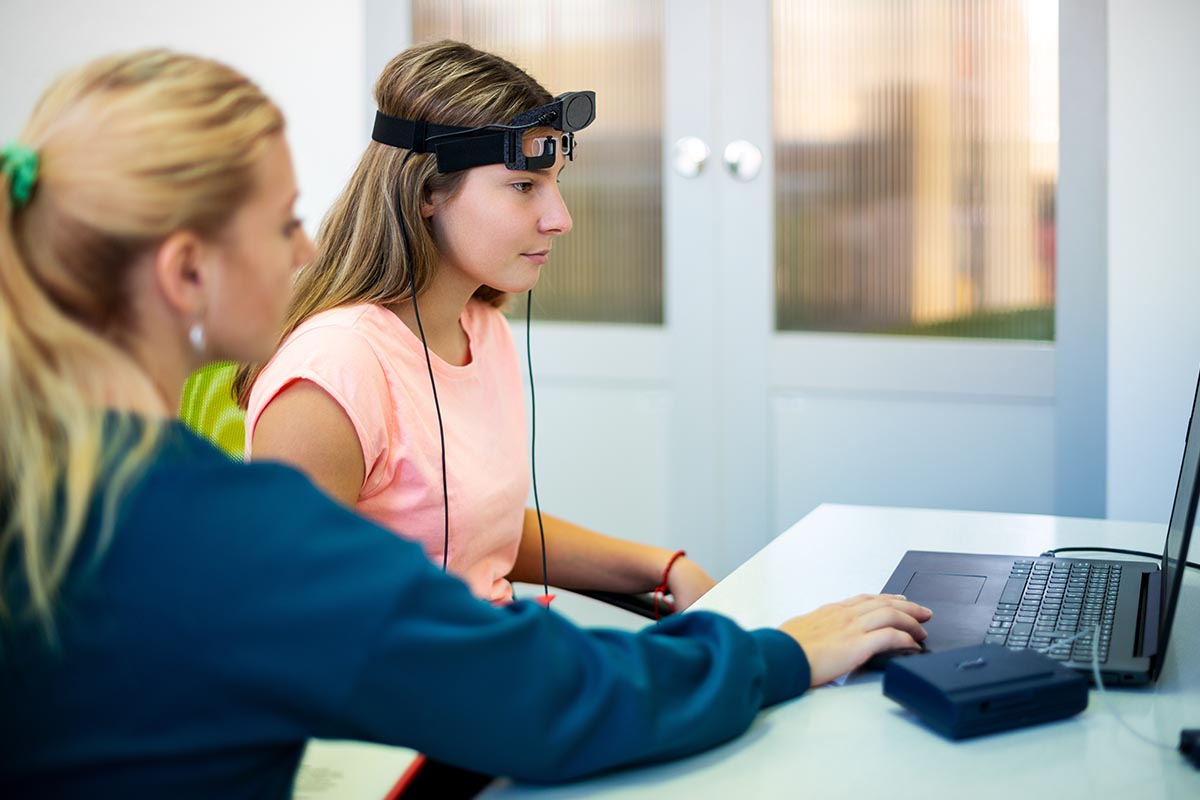Neurofeedback therapy is a relatively new, non-invasive treatment option for men and women struggling with depression, anxiety, or other mental health disorders. Preparing for neurofeedback therapy can help you understand what to expect from your treatment and show you how you can change your negative thoughts and feelings. Colorado neurofeedback therapy gives patients a safe and effective treatment option that can greatly improve their mental health.
At Colorado Medication Assisted Recovery, we help men and women struggling with social anxiety, PTSD, or other mental health illness. Our certified therapists use neurofeedback therapy along with behavioral therapies and medication-assisted treatment to give patients the best chances of living healthy and productive lives. Call 833.448.0127 or fill out our online form today to learn what to expect in neurofeedback therapy at our outpatient treatment facility.
What Is Neurofeedback Therapy?
Neurofeedback therapy, or EEG biofeedback, is a form of therapy that shows patients how they can develop healthier brain activity. It can help change the way you think and feel and make fundamental changes in how your brain perceives different situations. If going out with friends causes you to feel anxious and worried, neurofeedback therapy changes the way your brain reacts to the situation so that you will no longer feel anxious when going out.
The most common forms of neurofeedback therapy include:
- Frequency/Power Neurofeedback
- Slow cortical potential neurofeedback (SCP-NF)
- Low-energy neurofeedback system (LENS)
- Hemoencephalography neurofeedback
- Live Z-Score neurofeedback
- Low-resolution electromagnetic tomography (LORE-TA)
- Functional magnetic resonance imaging (fMRI)
At Colorado Medication Assisted Recovery, our therapists have experience with neurofeedback therapy and can help you prepare for neurofeedback therapy. They will discuss each step with you and answer any questions before beginning your therapy to ease any concerns you may have.
Preparing for Neurofeedback Therapy
Neurofeedback therapy is non-invasive and does not require any medication. It is a holistic form of therapy that uses technology to look at how your negative thoughts and emotions affect your brain and how you can improve your brain patterns.
Here is a brief look at what to expect in neurofeedback therapy:
- Before starting your neurofeedback therapy, therapists will discuss your mental health issues and create a game plan for reaching your recovery goals.
- During your first session, sensors are placed around your head to display your brainwaves on a monitor. They will get a baseline of your brain’s activity while watching a movie, playing a video game, or doing other activities. They will use this baseline to monitor your progress and go over what each brain wave represents.
- During therapy, you will participate in an activity while your therapist watches your brain waves. When there is a positive change in the pattern, you are rewarded. As you continue to make positive changes and receive more rewards, you will create new brain waves that will overwrite your negative ones. This is called neuroplasticity.
- You will continue neurofeedback therapy for as long as necessary to reduce your negative thoughts and habits. A typical program can consist of up to 30 to 40 sessions, depending on your individual needs.
Colorado Medication Assisted Recovery Offers Neurofeedback Therapy to Benefit Your Recovery
What is neurofeedback therapy? At Colorado Medication Assisted Recovery, we help men and women struggling with depression or other mental health disorders by showing them how they have the power to change their brain patterns. Neurofeedback is just one type of therapy that we use to aid in our patient’s mental health recovery. The therapies we offer include:
- Cognitive-behavioral therapy
- Dialectical behavior therapy
- Family therapy
- Group and individual therapy
- Case management
- Peer support
Call 833.448.0127 or fill out our online contact form today to see how our neurofeedback therapy can improve your mental health symptoms.

















